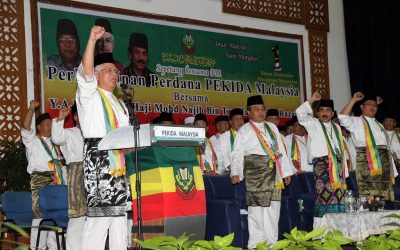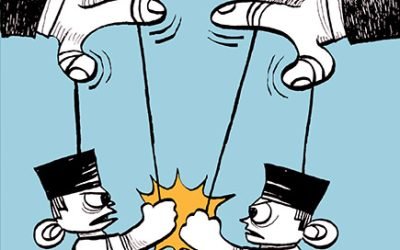This chapter focuses specifically on the relationship between the organisation PEKIDA and its satellites, and the former ruling party UMNO (1957-2018). It explains the phenomenon in the context of the Prime Ministers Abdullah Badawi and Najib Razak governements' era,...
The Real World? Fabricating Legitimacy in a Semi-Authoritarian State | Illusions of Democracy: Malaysian Politics and People (Chapter 5), 2018
This chapter examines the durability of the United Malays National Organisation (UMNO)'s rule in Malaysia, exploring how the party has maintained political stability by constructing and manipulating perceptions of power and legitimacy. This article is available on...
Gangsta and politics in Malaysia | Misplaced Democracy: Malaysian Politics and People (Chapter 5), 2014
This chapter is a short exploration of the relationship between political parties, and more specifically UMNO, and gangs through the case study of Pekida. The articulation of this relationship is the central concept of this study: we define it as "connivance...
Conversion and Controversy: Reshaping the Boundaries of Malaysian Pluralism | Proselytizing and the Limits of Religious Platform in Contemporary Asia (Chapter 10), 2013
In Malaysia, the political articulation and social perception of religion, more specifically of proselytism and conversion, are at the source of recurrent tensions between religious groups, and jeopardize the balance of this plural society. The first part of this...
Cracks in the Mosaic: The rise of Ethno-religious Groups in Malaysia | Religious Norms in the Public Sphere, 2011
In this talk, I’m going to give a case study on the rise of ethnonationalist groups in Malaysia. In order to understand the origins and challenges of this movement, it is necessary to give a bit of background first. Historically, Malaysia has been at the crossroad of...




